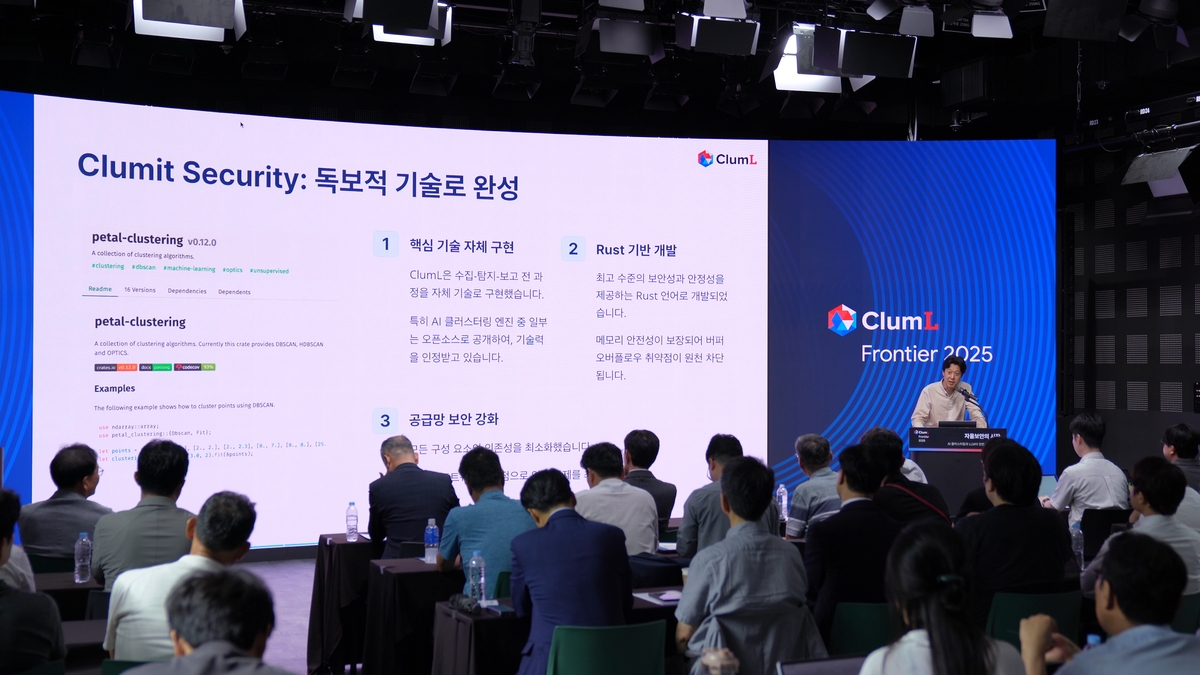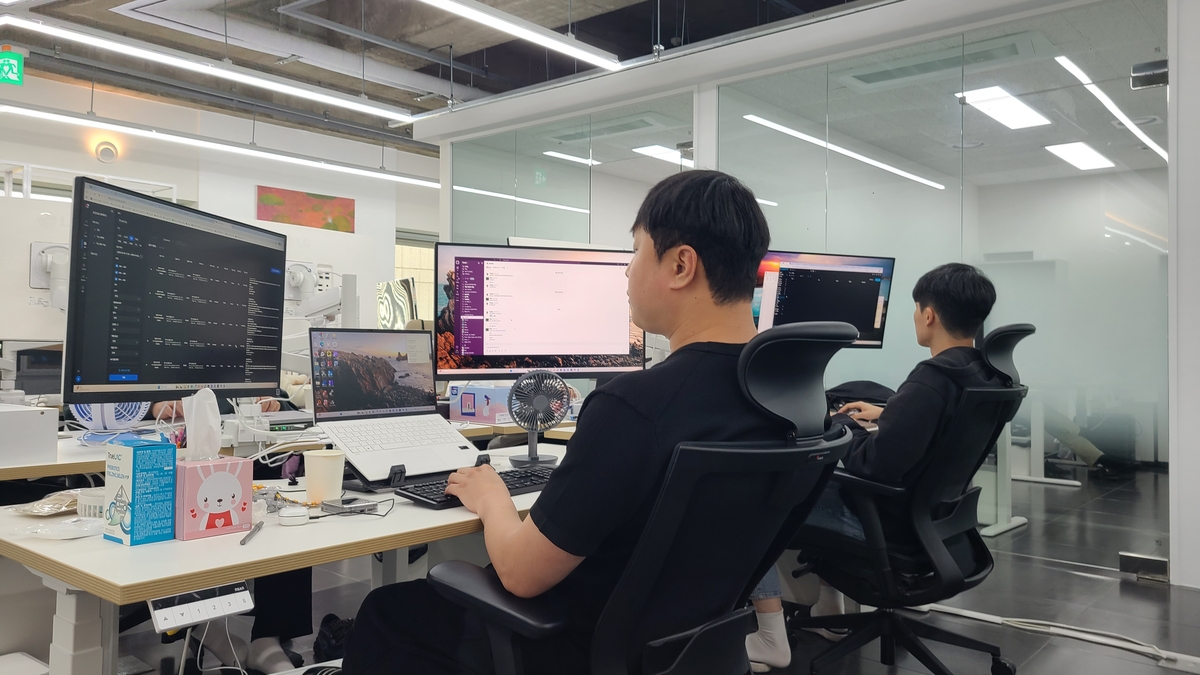(Yonhap Interview) Startup ClumL hopes to become a "sovereign" AI cybersecurity powerhouse: CEO
By Kang Jae-eun
SEOUL, Oct. 23 (Yonhap) -- South Korea is widely known as a leader in digital innovation, with its ultra-fast internet and global tech companies such as Samsung Electronics, SK hynix and Hyundai Motor. But the recent string of hacking attacks targeting credit card companies, telecommunication firms and government servers have exposed the vulnerabilities of its cybersecurity defenses, the head of a local cybersecurity startup said.
Ryou Young-dae, the chief executive officer (CEO) of ClumL, said his company seeks to put South Korea on the map as one of the first movers and a leader in using artificial intelligence (AI) clustering technology to tackle cyber attacks.
"Nowadays, AI could launch an attack on its own and hackers can leverage AI to attack in ways that deviate from already known patterns," Ryou said during an interview with Yonhap News Agency on Monday.
"The era of detecting cyber threats based on intelligence is over. We need to move in the direction of using AI to detect cyber threats comprehensively," added the head of the Seoul-based startup, which was officially launched in 2021.
AI clustering refers to a technique where AI algorithms automatically group similar user behaviors or data points. In the context of cybersecurity, AI clustering could help security analysts to quickly identify patterns that may indicate malicious activity.

Ryou Young-dae, the founder and chief executive officer of ClumL poses for a photo at the company's office in southern Seoul on Oct. 20, 2025. (Yonhap)
ClumL's cybersecurity software, Clumit Security, utilizes its own AI clustering algorithm to automatically detect abnormal network traffic and end point data. The system also creates real-time analysis reports using large language model (LLM) technology.
Ryou said the core algorithm that makes up ClumL's AI clustering engine, which obtained a patent in the United States, was close to 10 years in the making at a small computer science lab of six researchers.
"Our core technology was under development since 2013 by then professor Kim Min-sik at Washington State University, who has now become the head of our U.S. office," he said.
The lab originally intended to sell the technology to U.S. tech giant Intel Corp., but Ryou saw new opportunities in Korea as it witnessed a growing interest in AI-powered cybersecurity products around 2019.
Over the past 4 years, ClumL has expanded its client numbers to 30. The company's software is used by major firms, including Kyobo Book Center Co., and the Ministry of National Defense.
It has raised a combined 6.5 billion won (US$4.5 million) in two rounds of investment so far.
Last year, the company posted 1.7 billion won in sales, but an operating loss of 800 million won, which Ryou said was due to investments in research and development.
"We have invested approximately 20 billion won to develop the core technology. It is a rare case for a Korean company to invest such large amounts of money for a significant amount of time," he said.

An employee from ClumL is seen giving a presentation of the company's cybersecurity software, Clumit Security, on stage at a forum in this undated file photo provided by the company on Oct. 20, 2025. (PHOTO NOT FOR SALE) (Yonhap)
Ryou expected next year to be a "watershed moment" for his company and its AI-based technology, amid the recent series of cybersecurity breaches in Korea fueling demand for home-grown defense mechanisms.
Next year will also mark the start of ClumL's expansion abroad, Ryou added, with a particular focus on the U.S. and European markets.
"Unlike South Korea, global companies access the internet through an open server or offer their services online and are accustomed to using subscription-based cybersecurity services provided via the internet. We want to go in that direction, toward a SaaS model," he said.
SaaS, or software as a service, refers to a software delivery model using a cloud, where users can access software from any internet-connected device, instead of purchasing or installing it locally.
Communication platform Zoom and the content streaming platform Netflix are examples of SaaS.

Staffs members of ClumL are seen working inside the company's office in southern Seoul on Oct. 20, 2025. (Yonhap)
When asked about a potential initial public offering (IPO), Ryou said an IPO on the smaller tech-heavy KOSDAQ market in the next three years may be a possibility, but going public is the "lowest" of the company's goals, and is not a priority.
"AI has now become a matter of life and death and if (Korea) does not have its own AI technology, we will lose the opportunity to fight, eventually ending up as a subordinate to other countries," he said.
"We believe in the importance of building a sovereign AI cybersecurity system. We hope to grow in South Korea and abroad and contribute to national security."
fairydust@yna.co.kr
(END)
-
Prosecution drops charges against Chinese woman for attempting to trespass on BTS Jungkook's home
-
(LEAD) N. Korea says it tested 2 hypersonic projectiles, successfully hit target
-
(2nd LD) N. Korea says it tested 2 hypersonic projectiles, successfully hit target
-
(LEAD) Woman sent to prosecutors for trespassing into parking lot of BTS Jungkook's home
-
(3rd LD) Senior Seoul official reports 'partial progress' in trade negotiations with U.S.
